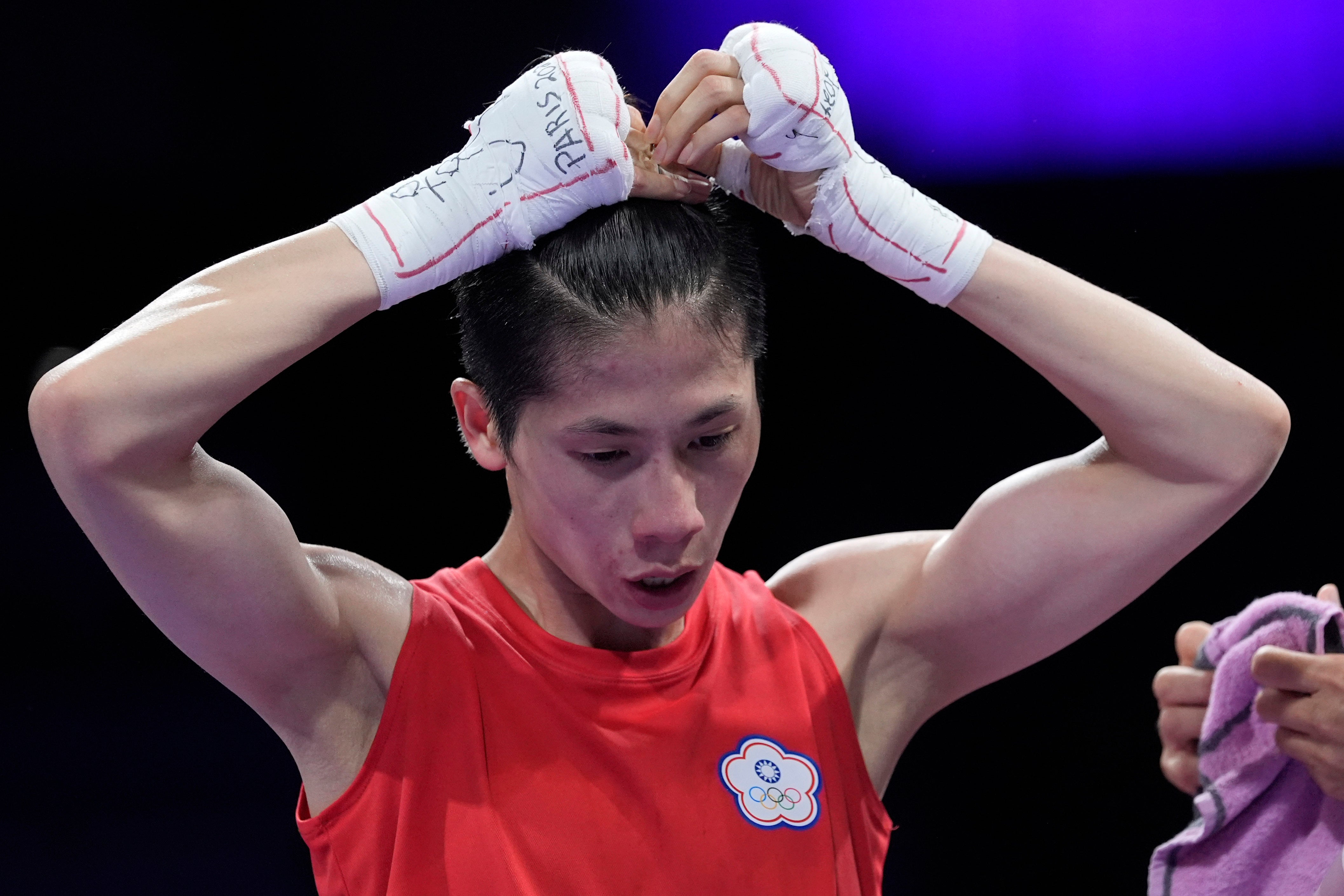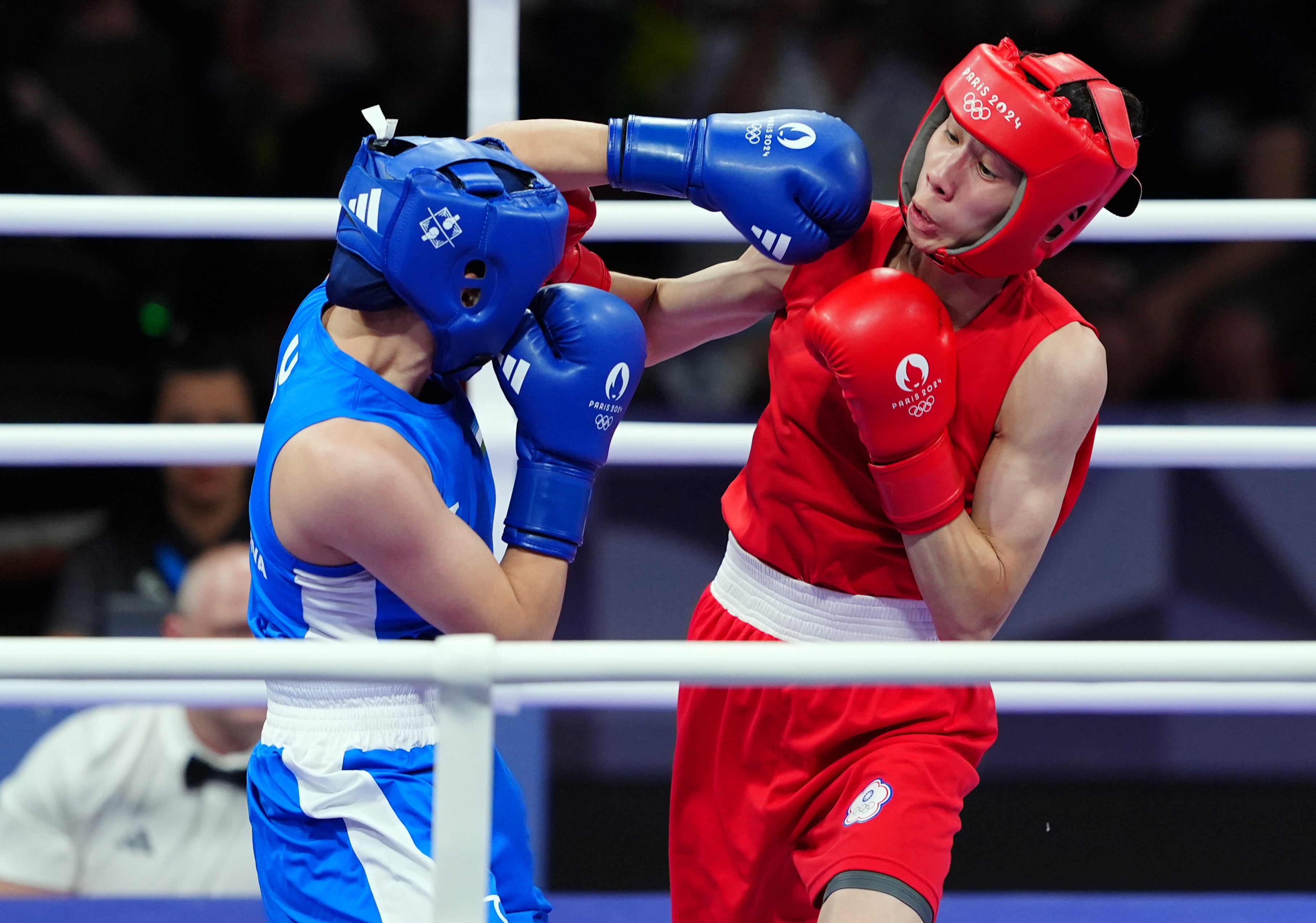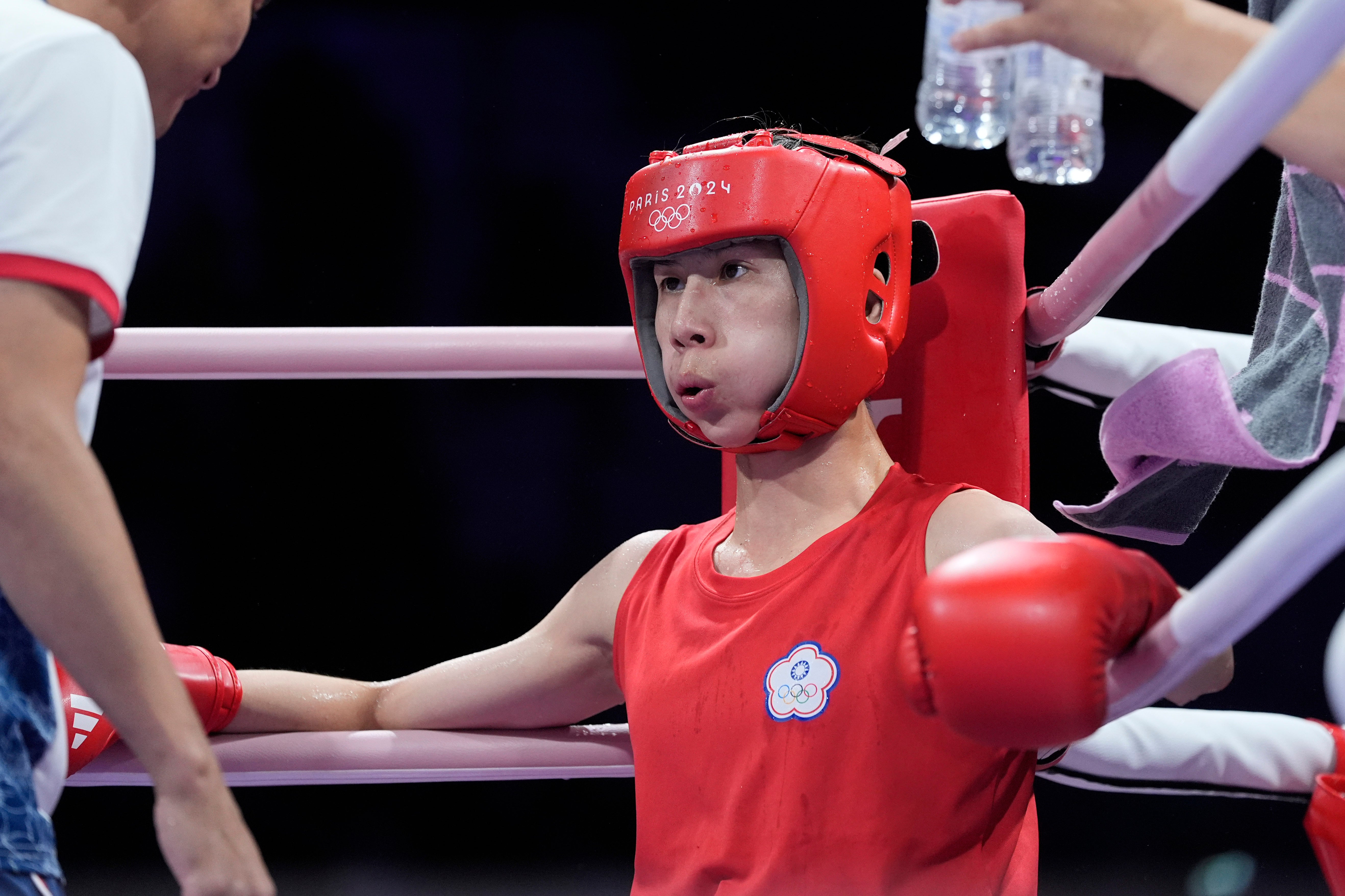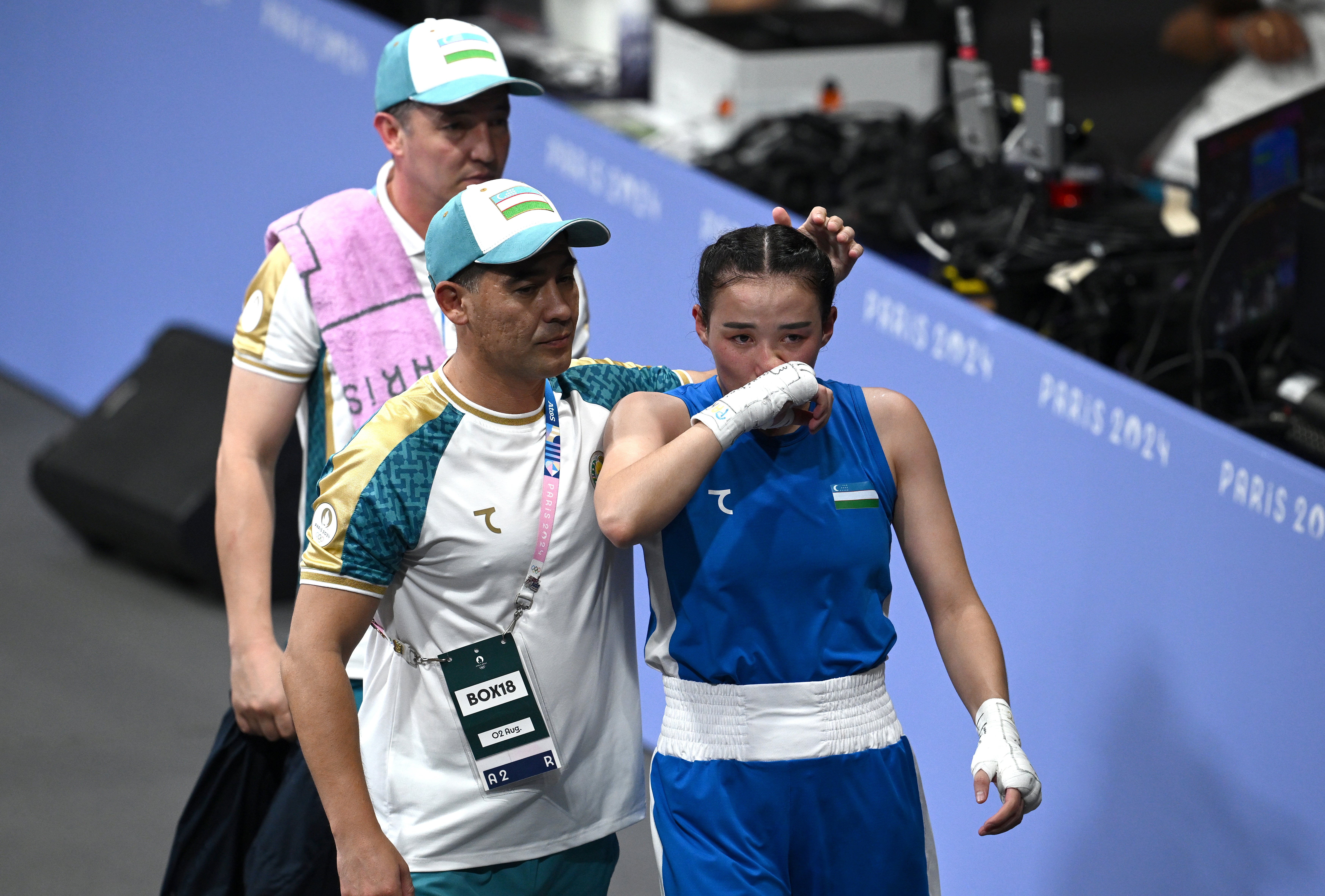How Lin Yu-ting overcame ‘pressure’ to land Olympics win amid gender controversy
The Taiwanese fighter – Lin Yu-ting followed Algeria’s Imane Khelif in featuring at the Paris Olympics amid widespread attention after failing gender eligibility tests in a previous tournament last year
Lin Yu-ting raised a hand at the bell after three rounds, the lights of the North Paris Arena bouncing off her shiny red glove as relief washed over her. An act of defiance amid all the noise with her Olympic dream still alive.
The Taiwanese boxer has endured immense pressure and scrutiny as she bids for gold in the women’s featherweight division.
Her participation here at Paris 2024, alongside Algeria’s Imane Khelif, has attracted global attention after it emerged they were both disqualified at last year’s Women’s World Boxing Championships when the International Boxing Association (IBA) – amateur boxing’s former governing body – said they failed to meet gender eligibility criteria.
The IBA added that the fighters “did not undergo a testosterone examination but were subject to a separate and recognised test, whereby the specifics remain confidential.
“This test conclusively indicated that both athletes did not meet the required necessary eligibility criteria and were found to have competitive advantages over other female competitors.”
The International Olympic Committee (IOC) would later take control of Olympic boxing at Paris 2024, deciding not to recognise the IBA over numerous issues, though their perceived failure to address governance, financial and ethical issues proved especially key to the decision which has rocked amateur boxing and left it with an uncertain future. The IBA, in response, claims the decision is motivated by “political agendas”.
Yet the treatment of Khelif and Lin has summarised the tension between the two organisations, with the IOC vehemently against the IBA’s move to disqualify Khelif and Lin, claiming them to be “victims of a sudden and arbitrary decision,” while maintaining they were not afforded “due process”.
So Khelif and Lin prepared as usual for the Games, making their second appearances, following underwhelming outings at Tokyo 2020, with the IOC’s blessing. But Khelif’s second-round welterweight fight against Angela Carini brought the issue to a head, providing the fuse for a nasty narrative on social media packed with misinformation.
There were extraordinary optics, too, as the distraught Italian withdrew from the contest after 46 seconds following two meaningful punches. “It’s not right,” she raged, before blaming “pain in the nose” and reiterating that she had “never felt a punch like this”. She said: “It’s not up to me to say if it’s fair or not fair. I just did my job. I managed to leave with my head held high.

Taiwan’s Lin after fighting Uzbekistan’s Sitora Turdibekova (AP)
“I wish her to carry on until the end and that she can be happy. I am someone who doesn’t judge anyone. I am not here to give judgments.”
Khelif will return on Saturday, yet Lin, too, as the No 1 seed and favourite to reign at 57kg, is dealing with an unimaginable amount of pressure.
She was greeted by a rasping noise, given Sitora Turdibekova’s rowdy cluster of Uzbekistan fans, who delivered a relentless and coordinated series of thunderous clapping.

The Taiwanese fighter won her opening bout in five straight rounds (PA)
But Lin, a two-time world champion looking to add an Olympic medal to complete the prestigious “grand slam” in amateur boxing, neutralised both the atmosphere and any internal strife with her polished skills.
With Turdibekova eager for a messy contest while grappling on the inside on every occasion, Lin repeatedly landed precise, rangy jabs. Her movement, gliding around the periphery of the ring, navigated two gruelling rounds. Then, from her southpaw stance, she started to put together thudding crosses to sap any remaining hope in her opponent. A 5-0 victory on points, yet just like Khelif v Carini, there was no embrace. In fact, Turdibekova appeared distraught just like Carini, shrugging off the comfort of her coaches and covering her face with the palms of her hands as she staggered back to the dressing room, refusing to speak to the media.

Lin in her corner during her round of 16 contest in Paris (AP)
Lin, too, was in no mood to talk. Nor was her sheepish coach, John Tseng Tzu-Chiang, really. Yet he did provide a glimpse of the stress this situation has provoked. He remarked: “First round? Pressure!”
The issue will not go away, with Khelif back in the ring on Saturday in a quarter-final against Anna Luca Hamori. And while other contenders at 66kg, including Ireland’s Michaela Walsh, who exited in the round of 16 after defeat to Svetlana Kamenova Staneva, have refused to be drawn into the story, the Hungarian has gleefully talked up her unexpected part.

Sitora Turdibekova of Uzbekistan walks off after being defeated by Lin of Taiwan (EPA)
“I’m not scared,” Hamori said. “It was Carini’s choice [to give up]. I don’t understand because I thought every boxer’s mind is the same like [sic] mine. Never give up. I know I won’t do this ever in my whole life.
“I don’t care about the stories, what is going on the social media right now. I just want to stay focused on myself and I know why I came here. I want to get a medal from the Olympic Games. I will go to the ring and I will get my win. I trust myself so I think I can win.”
A school for the titans of professional pugilism, from Floyd Mayweather and Vasyl Lomachenko to Katie Taylor and Anthony Joshua, this feels like a miserable end for amateur boxing at the Olympics. Indeed, unless boxing can show the IOC it is organised by a “credible, well-governed international federation”, it will surely vanish before Los Angeles 2028.
While the wider impact of this sorry episode is to come, for now, two women continue to take punishment both in and out of the ring.





